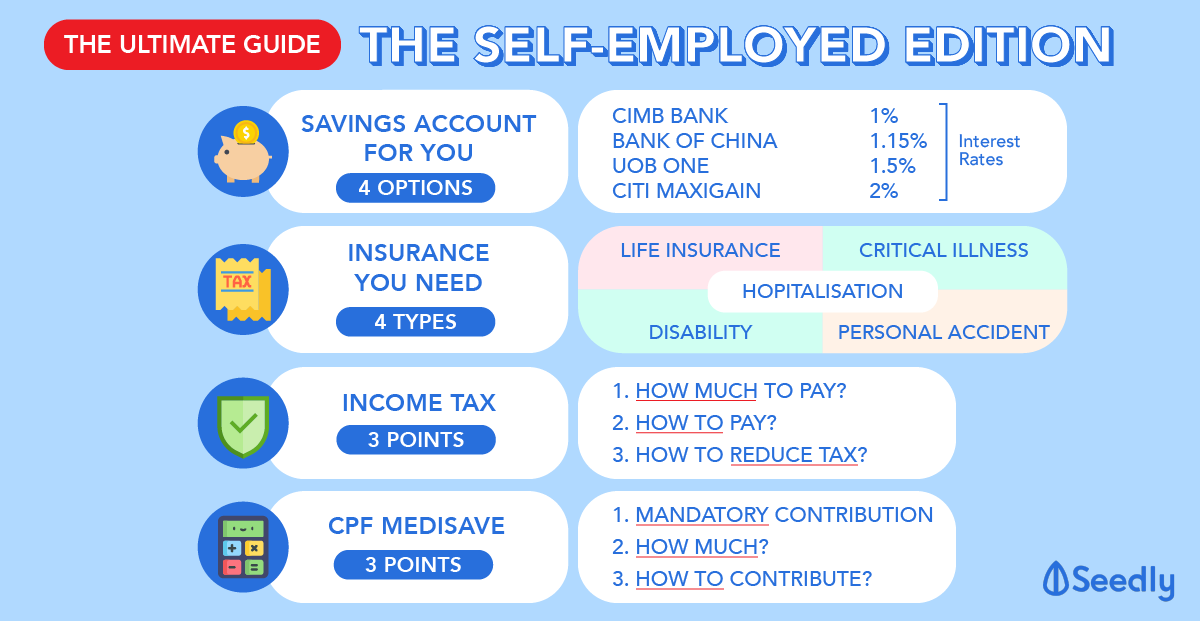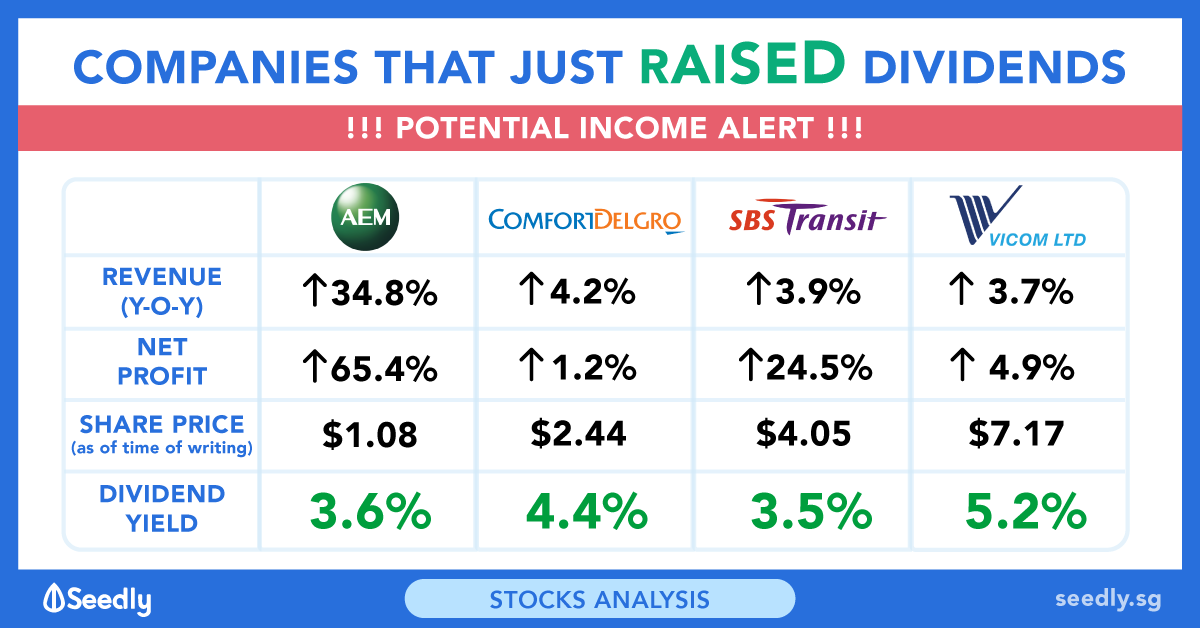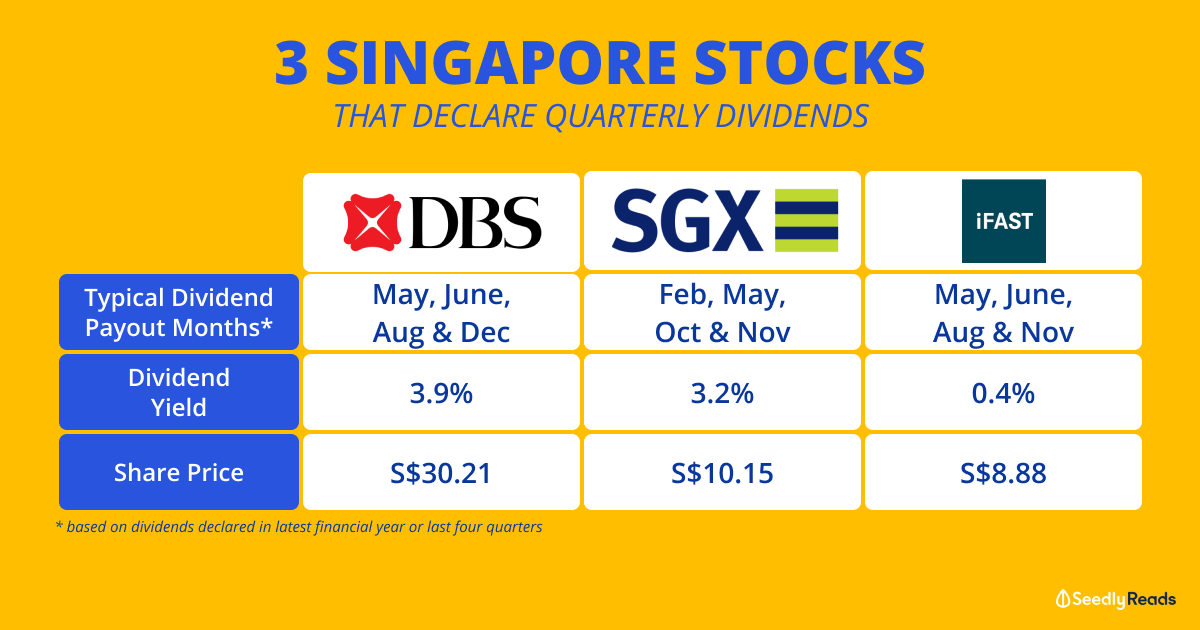1. Do I need to pay CPF on dividends?
It depends. If you're not self-employed, then no. CPF is payable on Ordinary Wages (OW) and Additional Wages (AW). Dividends don't fall into either of these wage categories (they're capital gains). If you're only drawing dividends from the company, you don't make CPF contributions from your dividends alone.
See here for income that's subject to CPF contribution: https://www.cpf.gov.sg/Employers/EmployerGuides...
If you're self-employed, however, then you'll have to contribute to your Medisave only. You must make this contribution if your annual Net Trade Income (NTI) SGD 6,000. Dividends would constitute a form of Net Trade Income (well, strictly speaking it's actually the business profit you declare that forms your NTI, and you have to make a profit to issue dividends anyway).
See here for a definition of NTI, and Medisave contribution rates: https://www.iras.gov.sg/IRASHome/Businesses/Sel...
2. When can I declare dividends?
You can declare dividends anytime throughout the year; these are called "interim dividends". At the end of the company's financial year, you'll declare a "final dividend".
Singapore Legal Advice has a useful guide on declaring dividends: https://singaporelegaladvice.com/law-articles/d...
Remember that you can only declare dividends (whether interm or final) if your company is reporting a profit. If you declare a dividend knowing that your company hasn't generated profits, you'll be exposed to both criminal and civil liability.
Under Section 403(2) of the Companies Act, directors who declare dividends without available profits can be jailed up to 12 months, fined up to $5,000, and will be personally liable for all corporate debts incurred to the extent that dividends paid exceeded profits.
See here for an explanation of the top 5 director liabilities in Singapore: https://www.providecover.com/top-5-personal-lia...
3. If you're a company director, you're exposed to a wide variety of legal liabilities, from customers to creditors to employees. Directors who get sued personally will have personal assets like their house and bank savings exposed to legal claims. It's important to protect your assets with Directors & Officers Liability Insurance (D&O Insurance), which will pay for legal defense costs and damages awarded.
Directors can get D&O Insurance with $1,000,000 in coverage, starting from only $75/month.
Get an online Directors & Officers Liability Insurance quote within 60 seconds here.








1. Do I need to pay CPF on dividends?
It depends. If you're not self-employed, then no. CPF is payable on Ordinary Wages (OW) and Additional Wages (AW). Dividends don't fall into either of these wage categories (they're capital gains). If you're only drawing dividends from the company, you don't make CPF contributions from your dividends alone.
See here for income that's subject to CPF contribution: https://www.cpf.gov.sg/Employers/EmployerGuides...
If you're self-employed, however, then you'll have to contribute to your Medisave only. You must make this contribution if your annual Net Trade Income (NTI) SGD 6,000. Dividends would constitute a form of Net Trade Income (well, strictly speaking it's actually the business profit you declare that forms your NTI, and you have to make a profit to issue dividends anyway).
See here for a definition of NTI, and Medisave contribution rates: https://www.iras.gov.sg/IRASHome/Businesses/Sel...
2. When can I declare dividends?
You can declare dividends anytime throughout the year; these are called "interim dividends". At the end of the company's financial year, you'll declare a "final dividend".
Singapore Legal Advice has a useful guide on declaring dividends: https://singaporelegaladvice.com/law-articles/d...
Remember that you can only declare dividends (whether interm or final) if your company is reporting a profit. If you declare a dividend knowing that your company hasn't generated profits, you'll be exposed to both criminal and civil liability.
Under Section 403(2) of the Companies Act, directors who declare dividends without available profits can be jailed up to 12 months, fined up to $5,000, and will be personally liable for all corporate debts incurred to the extent that dividends paid exceeded profits.
See here for an explanation of the top 5 director liabilities in Singapore: https://www.providecover.com/top-5-personal-lia...
3. If you're a company director, you're exposed to a wide variety of legal liabilities, from customers to creditors to employees. Directors who get sued personally will have personal assets like their house and bank savings exposed to legal claims. It's important to protect your assets with Directors & Officers Liability Insurance (D&O Insurance), which will pay for legal defense costs and damages awarded.
Directors can get D&O Insurance with $1,000,000 in coverage, starting from only $75/month.
Get an online Directors & Officers Liability Insurance quote within 60 seconds here.